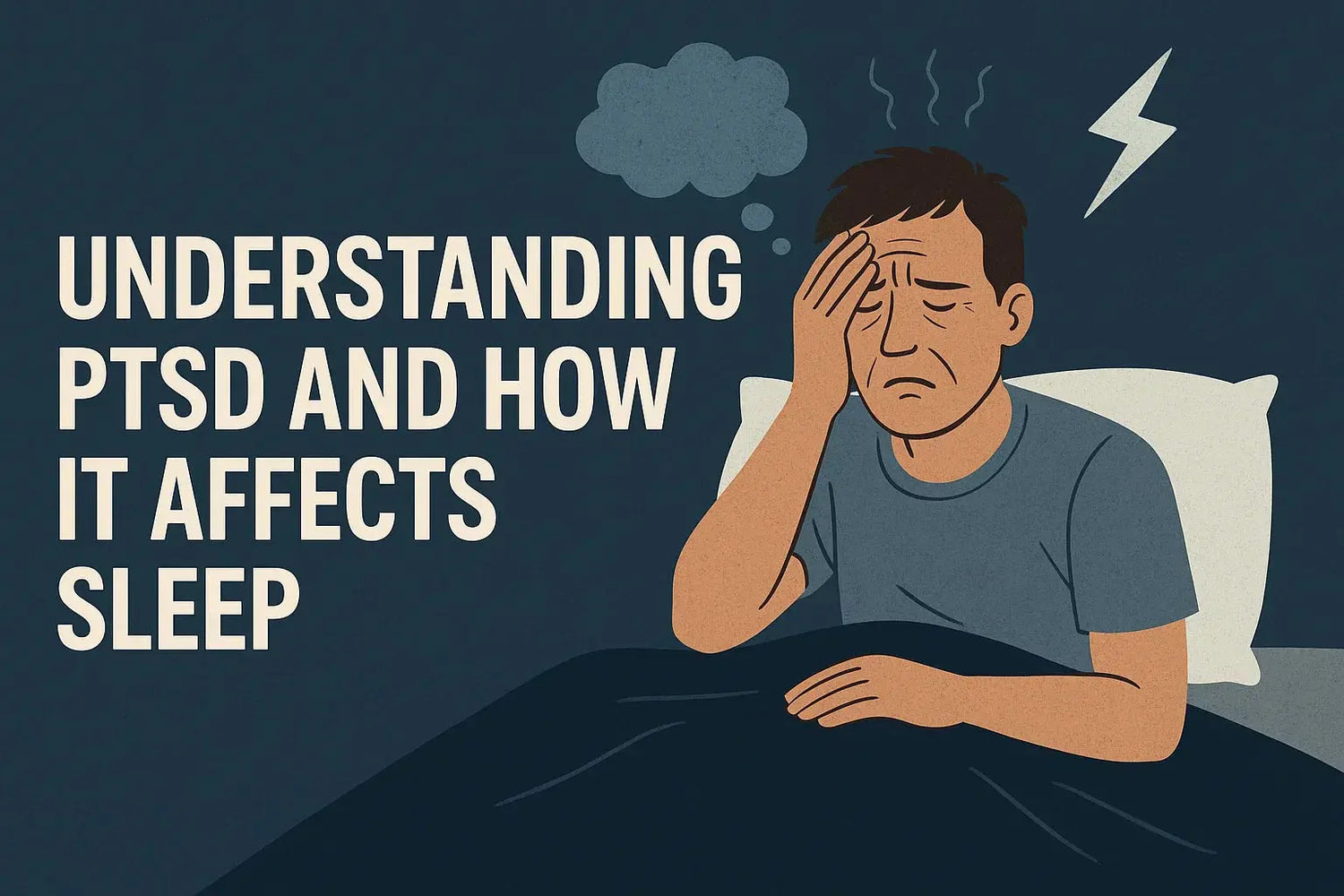
Post-Traumatic Stress Disorder (PTSD) affects millions of people around the world, and one of its most disruptive impacts is on sleep. Individuals living with PTSD often struggle with nightmares, insomnia, and restless sleep, which can exacerbate their symptoms and leave them feeling constantly fatigued. In this blog, we’ll explore how PTSD affects sleep, the common sleep disturbances people with PTSD experience, and practical tips for addressing these issues. We’ll also share ways partners can help support their loved ones, ensuring everyone gets the rest they need. With the right strategies and support, it’s possible to improve sleep quality and overall well-being.
What is PTSD?
Post-Traumatic Stress Disorder (PTSD) is a mental health condition triggered by experiencing or witnessing traumatic events. Common in individuals who have been through events like military combat, natural disasters, or severe accidents, PTSD causes a range of emotional and physical symptoms, including flashbacks, anxiety, and heightened stress. Those affected often struggle with everyday activities, and one of the most profound impacts is on their sleep quality.

The Relationship Between Sleep and PTSD
Sleep and PTSD have a complex relationship. For individuals with PTSD, sleep is often disrupted, making it harder to feel rested. The heightened stress responses caused by trauma can make it difficult to fall asleep or stay asleep, and the body’s inability to relax can result in poor-quality sleep. Additionally, the emotional and physical toll of PTSD leads to frequent nightmares, flashbacks, and anxiety, all of which interfere with the ability to rest peacefully.
How PTSD Affects Sleep
- Insomnia: Many people with PTSD struggle with insomnia, which is characterized by difficulty falling or staying asleep.
- Nightmares and Night Terrors: PTSD is often associated with vivid and disturbing dreams related to the traumatic event, leading to frequent awakenings.
- Sleep Apnea: PTSD can lead to disruptions in breathing patterns during sleep, such as sleep apnea, which causes restless nights and poor-quality sleep.
- Increased Stress: The anxiety and hypervigilance that accompany PTSD can make it harder for individuals to relax, causing a heightened state of alertness, even at night.
- Restless Sleep: People with PTSD may experience restless sleep, waking up frequently or feeling unrefreshed upon waking.
Addressing PTSD Sleep Issues
Addressing sleep issues related to PTSD requires a multifaceted approach:
- Therapy and Counseling: Cognitive Behavioral Therapy (CBT) is often effective in helping individuals with PTSD manage sleep disturbances and develop healthier sleep habits.
- Medication: In some cases, medications such as antidepressants or sleep aids may be prescribed to alleviate sleep disruptions caused by PTSD.
- Sleep Hygiene: Creating a comfortable, calming sleep environment is essential. Investing in a mattress that supports restful sleep, like Anmiz, with its Anmiz-Y™ cooling foam, can help improve sleep quality.
- Relaxation Techniques: Practices such as meditation, deep breathing, and progressive muscle relaxation can help reduce anxiety and prepare the body for sleep.
- Establishing a Routine: Going to bed and waking up at the same time each day can help regulate the body’s internal clock and improve sleep consistency.
Sleep Tips for Partners of People with PTSD
If you share your bed with someone who has PTSD, their sleep disturbances can also affect you. Here are some tips for partners:
- Provide Emotional Support: Be patient and understanding about your partner’s sleep issues. Offering comfort and reassurance can help alleviate anxiety.
- Create a Calm Sleep Environment: Minimize distractions and create a soothing atmosphere in the bedroom, using soft lighting, calming sounds, or an essential oil diffuser.
- Maintain Communication: Talk openly with your partner about their sleep needs and provide support in addressing sleep disturbances.
- Consider Separate Sleep Spaces: If sleep disturbances become too disruptive, consider sleeping in separate beds for a while to ensure both partners get adequate rest.
Suggested Table:
| Impact of PTSD on Sleep | Solution |
| Insomnia | Cognitive Behavioral Therapy (CBT) and better sleep hygiene |
| Nightmares and Night Terrors | Meditation and relaxation techniques |
| Sleep Apnea | Medical treatment and improved sleep environment |
| Increased Stress and Anxiety | Relaxation techniques, reducing caffeine and alcohol |
| Restless Sleep | Comfortable and supportive mattress like Anmiz-Y™. |







